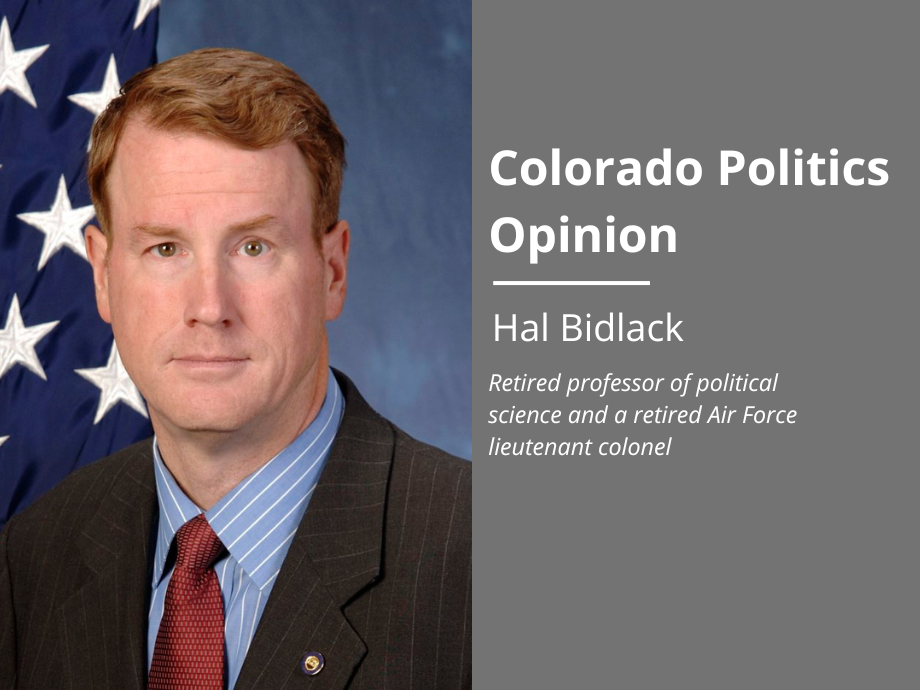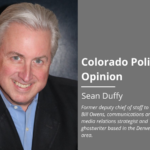The most important, but boring, thing in government | BIDLACK


Before I begin today’s rant, I mean bombast, I mean column, I need to clear up a bit of confusion I created in my last one. Colorado Politics ace reporter Ernest Luning emailed me to point out that I had been unclear and at least a bit confusing when I was trying to make my point about religion and our state legislature. The story upon which I was waxing philosophic noted that our state elected folks tended to be more religious than the general population. I have long been concerned about what I see as the outsized role of religion in policy making, and so I thought I’d comment on that concern. Had I just said what I just wrote in the last sentence, it might well have been clear, but I added in the numbers from recent polling, and managed to make a fairly simple issue more confusing than it needed to be. Sorry about that, dear readers, I’ll work to do better, and thanks to Ernest for pointing out the confusing stuff.
Now, as I again leap atop my rickety soapbox, I admit I’d really like to write on the CoPo story reporting on the slight dip in a certain former president’s popularity following his 37-count indictment on multiple felony charges. What I’d like to point out is there was only a slight dip, with fully 60% of Republicans still having a favorable opinion of the twice-impeached hoarder of classified documents, down from 68% last April.
In previous columns, I’ve compared our divided society to the way the U.S. was in the years prior to the Civil War, when folks also lived in bubbles that resisted any outside information or, well, facts (“or well,” see what I did there? Orwell).
(Editor: not as clever as you think).
I’m not sure Trump was wrong when, way back in his first campaign, he argued he could shoot a person in the middle of Fifth Avenue and not lose any votes. I really thought the removing, improperly storing, and then lying about top-secret stuff might finally be the wedge that pulled significant support from him, but I’m wrong again. Sigh.
Stay up to speed: Sign-up for daily opinion in your inbox Monday-Friday
But let’s put all that aside and talk about the weather, shall we?
My dad grew up on a farm in Iowa and came of age in the Great Depression. But he always told me his memory of said depression was far less significant in his mind than the drought that devastated huge portions of the agricultural regions in the middle of the country at the same time. Even years later, as a distinguished university dean, he couldn’t stand to hear people complain about rain spoiling their events. He aways said, “don’t complain about the rain, that’s where your food comes from.” I thought of Dad and his memories of drought when reading a recent CoPo story about the massive rains that hit my town of Colorado Springs recently.
Over roughly two weeks or so, we got hit with several massive dumps of rain. And as of my writing these words, there are still a couple of dozen roads and/or bridges that are out or significantly damaged. As our brand-new mayor, Yemi Mobolade said, “While we are grateful for the record rainfall that we’ve had in Colorado Springs and El Paso County this month, it has not been kind to our public infrastructure.” I think my dad would have liked him.
This series of storms highlights the critical importance of giving a darn about infrastructure. All too often, governments at all levels have failed to properly fund their own infrastructure needs, like roads and bridges. And, of course, when disasters hit, old and feeble infrastructure can give way, requiring significant spending to repair.
The guy in charge of El Paso County public works estimates it will take $19 million to fix up our storm-ravaged roads and bridges damaged in our recent storms. Local and state authorities are looking to the federal government for funding, in hopes that our record rains will qualify for disaster relief. But ultimately, just as national defense is a responsibility of the national level of government, fixing roads and bridges will fall to county and city governments, even if they don’t have the money handy.
Enter President Joe Biden on a white horse with saddlebags full of infrastructure… (Editor: it’s possible you are pushing this metaphor too far…).
Now, I admit, I’ve always been a governance nerd, and I’ve always held a strong interest in infrastructure, in part because it is so boring and uninteresting to most folks. I’m also a big Biden fan, and so I’ll point out that one of the president’s greatest achievements so far is the passing into law of his infrastructure bill. That new law is massive, and addresses our nation’s immense problem with roads, bridges, railroads, and other infrastructure components. This federal money will flow to states and localities to fix up the roads and bridges and more that we rely on every day. At more than half-a-trillion dollars, the infrastructure law will be a huge help to communities across the country.
I can’t help but wonder how many of El Paso County’s washed-out roads and bridges might have been OK with regular maintenance over the years, had infrastructure money been available? The new law will be a huge help to communities large and small. Thanks, Joe.
Oh, and I learned, in researching this column Biden’s home state of Delaware is roughly the same size as El Paso County. How about that?
Will Biden get much credit for his massive investment in the core of what makes up our economy, our infrastructure? Not likely, as it isn’t “sexy” spending. But much like mowing your lawn or painting your house, it is work that needs to be done, regularly, regardless of how “appealing” it might be to voters.
Perhaps we will get the federal dollars to fix things in the short term, and then the federal funds from the recent new law to help fix things up so they won’t wash-out or be damaged in future storms.
I hope so.
Hal Bidlack is a retired professor of political science and a retired Air Force lieutenant colonel who taught more than 17 years at the U.S. Air Force Academy in Colorado Springs.







